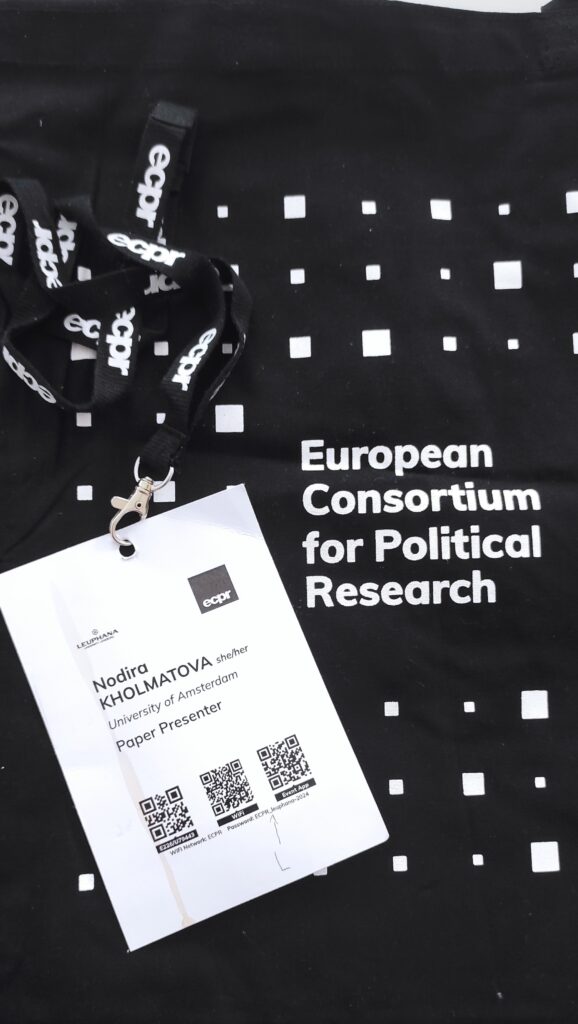Serbia was one of the first countries to have a signed and ratified readmission agreement with the EU. In our interviews with returnees in Serbia last year, many of the returnees were women who had migrated with their families and children. How do families and parents experience readmission and reintegration processes? The Reintegrate project shares our first findings at the ECPR workshop on return and readmission policy.
Ahead of the voting on the New Pact on Migration and Asylum by the European Parliament, a workshop on ‘EU Return and Readmission Policy: Going Beyond the Rationalist Paradigm’ was organized as part of the European Consortium for Political Research (ECPR) Joint Sessions of Workshops in Leuphana University, Lüneburg on 25 – 28 March 2024. The workshop brought together lead researchers on deportation studies and EU Readmission policies.
The key focus of the workshop was on addressing how returning migrants without authorization to stay and reducing unwanted migration have become a central focus of EU migration policy and strongly impact both migrants and the cooperation of the EU and its member states with non-EU countries
The workshop aimed to analyze these developments from divergent methodological and epistemological perspectives, going beyond what is often considered a rationalist paradigm (cf. De Genova 2013). The presented papers and the discussions contribute to a better understanding of the causes and consequences of the EU’s and member states’ return policies and question the foundations and rationales on which these policies are built.
The workshop was divided into two parts: the first part focused on EU Readmission policies and implementation in the destination countries and actors that process forced removal and assisted voluntary removal, and the second day focused on global experiences from Africa to the Western Balkans.

On the second day, Nodira Kholmatova, a postdoctoral researcher and Reintegration project team member, presented the project paper on family navigation of Readmission and Reintegration in Serbia, drawing on the findings from Serbia – one of the country cases of the Reintegrate project
The paper drew on recent data collection conducted in 2023 in different areas of Serbia. It was the first time the analysis was shared with the scientific community.
The paper was among the very few presentations that focused on the experience of returning under the EU Readmission policy from a return country perspective. This way, the paper brought valuable insights into how returnees experience deportation from EU countries and are readmitted to Serbia.
The paper aims to contribute to the emerging niche in return and deportation studies on how return and readmission policies impact families and parents, going beyond mere individual experiences. Drawing on the experiences of readmitted returnees in Serbia, the article explores the experiences of deportation from Germany and Sweden, readmission experiences, and reintegration processes in Belgrade and Novi Sad. The reintegration analysis encompasses how families navigate the employment and housing challenges and receive welfare support. Valuable comments were received on this paper, which will be revised and submitted for publication soon.
Each workshop day was wrapped up by a joint discussion focusing on critical issues related to EU deportation policy and research ethics, asking questions such as: how do European migration deportation policies affect our research agenda and how should we approach the field? Is it a good or bad thing if our studies lead to higher return rates? At the end of the second day, there was a discussion on a northern bias in deportation studies and how address this bias The organizers ask what is lost when northern scholars study southern realities? How would deportation studies look different if scholars in ‘the South’ were better represented, and what is the rationale for doing so? These questions encourage scholars to consider their role, responsibility, and research ethics, particularly in a topic as sensitive as deportation.
On the Reintegrate project, we follow several ethical protocols to protect respondents both during data collection and in dissemination of our results. We are fortunate to have a team to discuss and reflect on these sensitive ethical and positional issues. In future posts we will share more regarding our ethical processes, how we work to put our ethical protocols into action, and the challenges we face in these processes.
